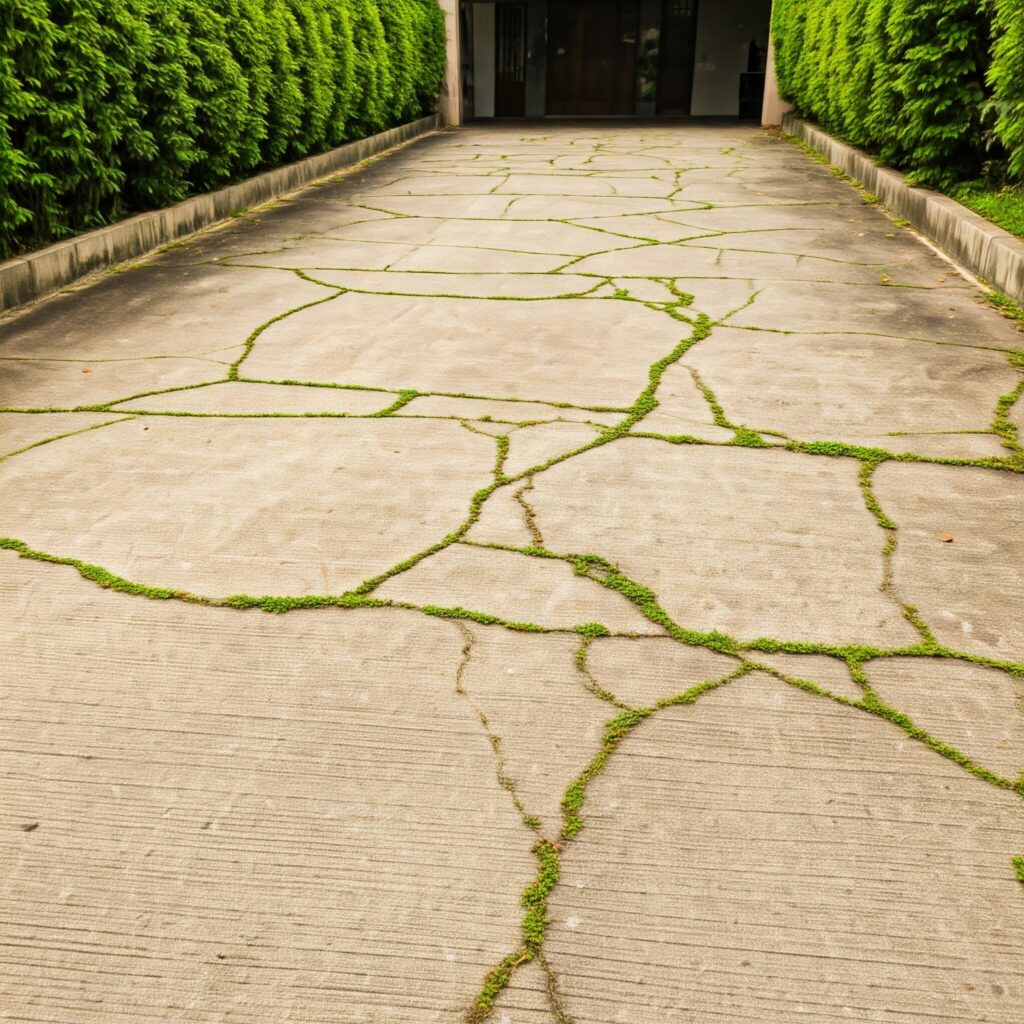Your driveway endures daily wear and tear, but for heavy traffic areas or properties accommodating large vehicles, the material you choose must be up to the challenge. From durability to maintenance and cost, selecting the right driveway material is critical for functionality and longevity. In this guide, we’ll explore the best options for heavy-duty driveways, helping you make an informed choice tailored to your needs.
Why Material Selection Matters
The Impact of Heavy Traffic
Heavy traffic driveways are subjected to intense pressure from vehicles, foot traffic, and environmental elements. Over time, unsuitable materials can crack, sink, or erode, leading to costly repairs or even a full replacement. A strong, durable material ensures your driveway withstands these demands while maintaining its appearance and performance.
Balancing Functionality and Aesthetics
While durability is the top priority for high-traffic driveways, there’s no reason to sacrifice curb appeal. Modern materials offer a blend of strength and style, ensuring your driveway complements your home while performing under pressure.
Top Driveway Materials for Heavy Traffic Areas
1. Concrete
Concrete is one of the most popular materials for heavy-traffic driveways due to its exceptional durability and versatility.
Advantages:
- Strength: Properly poured and cured concrete can withstand the weight of heavy vehicles without cracking.
- Customization: Stamped or colored concrete offers aesthetic options to match your home’s exterior.
- Low Maintenance: Requires occasional sealing and cleaning to maintain its integrity.
Considerations:
- Susceptible to cracking in freeze-thaw climates if not sealed properly.
- Initial installation costs can be higher than some other materials.
2. Asphalt
Asphalt driveways are another excellent choice for handling heavy traffic, known for their flexibility and durability.
Advantages:
- Resilience: Asphalt’s pliable nature makes it resistant to cracking under pressure.
- Quick Installation: Asphalt driveways can often be installed in just a day or two.
- Cost-Effective: Lower upfront costs compared to concrete.
Considerations:
- Requires regular maintenance, including sealing every 2–3 years.
- Can soften in extreme heat, leading to surface deformation under heavy vehicles.
3. Interlocking Pavers
Interlocking pavers combine durability with design flexibility, making them a high-performance option for heavy-traffic driveways.
Advantages:
- Load-Bearing Strength: Designed to distribute weight evenly, reducing the risk of cracks or damage.
- Aesthetic Appeal: Available in various patterns, colors, and textures to enhance curb appeal.
- Easy Repairs: Damaged pavers can be replaced individually without disrupting the entire driveway.
Considerations:
- Higher upfront installation costs due to labor-intensive placement.
- Weeds may grow between pavers if joints aren’t sealed properly.
4. Gravel
Gravel driveways are a budget-friendly option that can handle heavy traffic when properly installed and maintained.
Advantages:
- Affordability: One of the most cost-effective driveway materials.
- Drainage: Excellent drainage properties prevent water pooling.
- Durability: Can withstand heavy vehicles if a proper base layer is installed.
Considerations:
- Requires regular raking and replenishing of gravel.
- May develop ruts or become uneven over time.
5. Reinforced Concrete with Steel Mesh
For the ultimate heavy-duty driveway, reinforced concrete is an industrial-strength solution.
Advantages:
- Superior Strength: Reinforcing concrete with steel mesh or rebar increases load-bearing capacity.
- Longevity: When properly maintained, reinforced concrete can last decades.
- Minimal Maintenance: Requires occasional sealing and cleaning.
Considerations:
- Higher installation costs due to additional materials and labor.
- Less visually versatile than some other options.
Factors to Consider When Choosing a Material
1. Traffic Load
Consider the type and frequency of vehicles using your driveway. For properties with heavy trucks or frequent deliveries, reinforced materials like concrete or interlocking pavers are ideal.
2. Climate
Materials react differently to weather conditions. In colder climates, freeze-thaw cycles can cause cracking in concrete or asphalt, while gravel offers excellent drainage but may shift with rain or snow.
3. Maintenance Needs
Be realistic about the time and effort you’re willing to invest in upkeep. Asphalt and gravel require regular maintenance, while concrete and pavers are more low-maintenance but may need occasional sealing.
4. Budget
Evaluate both upfront installation costs and long-term maintenance expenses. Gravel is the most affordable option initially, but reinforced concrete or pavers may provide better value over time.
Common Mistakes to Avoid
Skipping a Proper Base
A strong foundation is essential for any driveway, especially those handling heavy loads. Without a well-prepared base, even the most durable materials can crack or sink over time.
Overlooking Drainage
Poor drainage leads to water pooling, which can weaken your driveway’s structure. Ensure the design includes proper grading or drainage systems.
Focusing Solely on Cost
While budget is important, opting for the cheapest material can result in higher long-term expenses due to repairs and replacements. Invest in a material that balances affordability with durability.
The Benefits of Choosing the Right Material
Selecting the best material for your driveway ensures longevity, reduces maintenance costs, and enhances your property’s curb appeal. A durable driveway that performs well under heavy traffic not only protects your investment but also provides peace of mind knowing it can handle daily demands with ease.
Your driveway is more than a parking space—it’s a crucial component of your property that must endure heavy use and harsh conditions. Choosing the right material for high-traffic areas ensures your driveway remains strong, functional, and visually appealing for years to come. From the resilience of concrete to the flexibility of interlocking pavers, there’s a solution to meet every need and style.
Don’t compromise on durability. Invest in a driveway material designed to withstand heavy loads and frequent use while maintaining its aesthetic appeal. Contact us today to explore durable, high-quality options tailored to your property.

